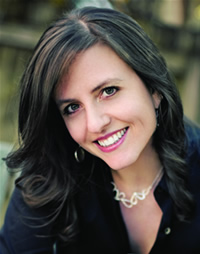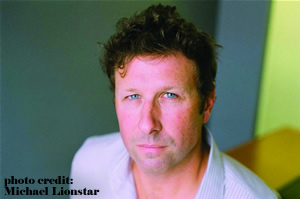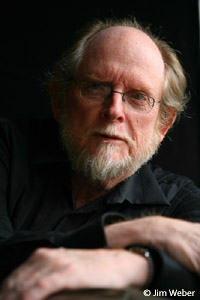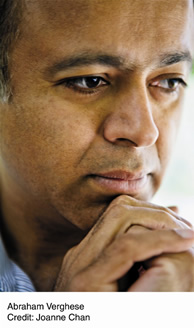A Banner Year
Tennessee writers shine on best-of lists all over the media
After a year of covering a host of truly remarkable authors who kept Tennessee on the literary map all year long, we at Chapter 16 aren’t surprised to find several Tennesseans (current and former) perched at the top of all kinds of best-of lists for the year in literature. From Amy Greene and Michael Knight in the east state, to Lydia Peelle and Adam Ross in Nashville, to Richard Bausch and Rebecca Skloot in Memphis, Tennesseans have kept people talking, and reading, with a host of great books this year.
 The bona fide phenomenon of the year is Rebecca Skloot’s book of nonfiction that reads like a novel. The Immortal Life of Henrietta Lacks hits the nexus of biography, human interest, science, and ethics. Way back in November 2009, Publisher’s Weekly featured on its cover the virtually unknown science writer who until last summer taught creative writing at the University of Memphis. At the time, Skloot was putting together a national book tour with little support from her publisher, Crown Books. Those efforts paid off, with help from glowing critical reviews and ecstatic word-of-mouth from booksellers and readers that followed Skloot on her travels. She hit the road when the book was released in February and returned to Memphis in June with that rare achievement, a national bestseller and critical favorite. The New York Times called it “publishing’s Cinderella story of the season.”
The bona fide phenomenon of the year is Rebecca Skloot’s book of nonfiction that reads like a novel. The Immortal Life of Henrietta Lacks hits the nexus of biography, human interest, science, and ethics. Way back in November 2009, Publisher’s Weekly featured on its cover the virtually unknown science writer who until last summer taught creative writing at the University of Memphis. At the time, Skloot was putting together a national book tour with little support from her publisher, Crown Books. Those efforts paid off, with help from glowing critical reviews and ecstatic word-of-mouth from booksellers and readers that followed Skloot on her travels. She hit the road when the book was released in February and returned to Memphis in June with that rare achievement, a national bestseller and critical favorite. The New York Times called it “publishing’s Cinderella story of the season.”
No surprise, then, that The Immortal Life of Henrietta Lacks has been named Book of the Year by Amazon. Skloot’s masterpiece appears among the best books of the year on numerous other lists, as well, including lists from National Public Radio; The New Yorker; The New York Times; New York magazine; The Washington Post; O, the Oprah Magazine; The Los Angeles Times; Slate; Publisher’s Weekly; Library Journal; Kirkus Reviews; The San Francisco Examiner; BookPage; MSNBC; U.S. News and doubtless many others. Skloot has moved on to Chicago, where she continues to write. A fund that Skloot created from a portion of the sales of The Immortal Life of Henrietta Lacks has already helped to pay for college for some of Lacks’s descendants.
 Like Skloot, Nashvillian Adam Ross earned early raves for his debut book, Mr. Peanut, a literary thriller. Before it had even hit shelves, Stephen King called it “the most riveting look at the dark side of marriage since Who’s Afraid of Virginia Woolf?” and noted in Entertainment Weekly that it “induced nightmares, at least in this reader.” Mr. Peanut, too, was included in top literary picks of the year by The New Yorker, The New York Times, The New Republic, The Philadelphia Inquirer, BookPage, and The Economist. Ross was also shortlisted for The Center for Fiction’s 2010 Flaherty-Dunnan First Novel Prize .
Like Skloot, Nashvillian Adam Ross earned early raves for his debut book, Mr. Peanut, a literary thriller. Before it had even hit shelves, Stephen King called it “the most riveting look at the dark side of marriage since Who’s Afraid of Virginia Woolf?” and noted in Entertainment Weekly that it “induced nightmares, at least in this reader.” Mr. Peanut, too, was included in top literary picks of the year by The New Yorker, The New York Times, The New Republic, The Philadelphia Inquirer, BookPage, and The Economist. Ross was also shortlisted for The Center for Fiction’s 2010 Flaherty-Dunnan First Novel Prize .
Amy Greene of Morristown, another debut author, is Tennessee’s Writer of the Year, an honor bestowed by the Tennessee Writers’ Alliance. Greene has earned critical acclaim for Bloodroot, a novel strongly rooted in the Appalachian region where her family has lived for generations. Bloodroot is on the best-debut-fiction list for both Amazon and Kirkus Reviews, the notoriously hard-to-please industry magazine, and is one of Booklist’s top ten books of the year. And its popularity with readers helped to earn the book a slot on Galleycat’s “Best Novels of 2010: A Literary Mixtape,” a best-of list chosen by readers of the site. The January paperback release of Bloodroot is likely to propel the novel to tremendous popularity as a book club selection in the coming year.
Greene’s east-state colleague, Michael Knight, saw his World War II-era novel, The Typist, make The Huffington Post’s top-ten list. The book was also an Indie Next Notable Selection and a Fall 2010 Okra Pick by the Southeastern Independent Booksellers Association. Knight teaches creative writing at the University of Tennessee-Knoxville, and has published two previous novels and a short-story collection.
 On the other side of the state, Richard Bausch—who teaches in the MFA program at the University of Memphis and who won the 2009 Dayton Literary Peace Prize for his novel Peace—earned rave reviews across the country this year for his collection of short stories, Something is Out There. As Maria Russo wrote in The New York Times Book Review, “Nineteen books into his career, [Bausch] seems determined to keep witnessing an array of human sorrows with compassion and an admirable steadiness. Again and again, he excavates the darkest corners of his characters’ lives without giving in to despair.” The book was also on best-of lists by The California Chronicle and The Irish Times.
On the other side of the state, Richard Bausch—who teaches in the MFA program at the University of Memphis and who won the 2009 Dayton Literary Peace Prize for his novel Peace—earned rave reviews across the country this year for his collection of short stories, Something is Out There. As Maria Russo wrote in The New York Times Book Review, “Nineteen books into his career, [Bausch] seems determined to keep witnessing an array of human sorrows with compassion and an admirable steadiness. Again and again, he excavates the darkest corners of his characters’ lives without giving in to despair.” The book was also on best-of lists by The California Chronicle and The Irish Times.
Memphis native Hampton Sides put in a strong showing this year, too, with Hellhound on His Trail. His nonfiction chronicle about the assassination of Martin Luther King Jr. made its way to best-of lists by Time; O, the Oprah Magazine; and Kirkus Reviews.
Steve Stern is a Memphis native whom The New York Times calls “the poet laureate of the Tennessee Jews.” His novel, The Frozen Rabbi, consistently earned paroxysms of praise from critics this year and is on the San Francisco Chronicle‘s best-of list for 2010.
Vanderbilt University’s literary offerings have been on special display this year: children’s novelist Tracy Barrett, who also teaches Italian at Vanderbilt, made School Library Journal’s “Best Books of 2010: Fiction” with her young-adult novel, King of Ithaka, which revisits The Odyssey through the eyes of Odysseus’s son Telemachos. Lorraine Lopez, who teaches in Vanderbilt’s creative-writing program was a finalist for the PEN/Faulkner Award for her collection, Homicide Survivors Picnic and Other Stories. Beth Bachmann, a poet who teaches in the same program, also won the Kate Tufts Discovery Award for her book, Temper.
It’s been a good year for poets elsewhere in the state, as well. In 2010, Eleanor Ross Taylor of Sewanee, widow of Peter Taylor, won the Poetry Foundation’s Ruth Lilly Poetry Prize. The award, which includes a $100,000 honorarium, is given to a “poet whose lifetime accomplishments warrant extraordinary recognition.” This prize is one of the most prestigious—and remunerative—awards given in the U.S.
Khaled Mattawa, who came to the United States from Libya as a teenager in 1979, received an undergraduate degree in political science and economics from the University of Tennessee, and went on to receive an MFA in creative writing from the University of Indiana and a Ph.D. from Duke University. This year he added a fellowship from the Academy of American Poets to a growing list of honors for his poetry.
 Another literary immigrant who found himself in East Tennessee is Abraham Verghese, whose 1994 memoir, My Own Country: A Doctor’s Story, was a groundbreaking work of creative nonfiction. Set in Johnson City, Tennessee, Verghese’s memoir chronicles the spread of AIDS into rural communities and the ethical decisions he faced in patient care. Verghese, who moved on to Texas and then to California, released his first novel, Cutting For Stone, in 2009. This year it was shortlisted for the Dayton Literary Peace Prize, and the American Booksellers Association named its paperback release the 2010 Book of the Year in the category of adult fiction. It was also runner-up for the PEN/Hemingway Award. Judging by the large, warm crowd that greeted him on his February tour stop at Davis-Kidd Booksellers in Nashville, we’re not the only ones who are proud to consider Verghese an honorary Tennessean for life.
Another literary immigrant who found himself in East Tennessee is Abraham Verghese, whose 1994 memoir, My Own Country: A Doctor’s Story, was a groundbreaking work of creative nonfiction. Set in Johnson City, Tennessee, Verghese’s memoir chronicles the spread of AIDS into rural communities and the ethical decisions he faced in patient care. Verghese, who moved on to Texas and then to California, released his first novel, Cutting For Stone, in 2009. This year it was shortlisted for the Dayton Literary Peace Prize, and the American Booksellers Association named its paperback release the 2010 Book of the Year in the category of adult fiction. It was also runner-up for the PEN/Hemingway Award. Judging by the large, warm crowd that greeted him on his February tour stop at Davis-Kidd Booksellers in Nashville, we’re not the only ones who are proud to consider Verghese an honorary Tennessean for life.
Known as a musician and member of country-music royalty, Rosanne Cash made a best-of list herself this year. Publisher’s Weekly included Composed: A Memoir, on its best of 2010 nonfiction list, saying, “This work is a rare treat, since Cash, first-born of country music legend Johnny Cash, is not only a hereditary celebrity musician, having made scores of albums and #1 singles, but a terrific writer.”
Nashvillian Lydia Peelle also earned critical raves last year for her first short-story collection, Reasons for and Advantages of Breathing. This year the honors continued: Peelle won a Whiting Award, which includes $50,000 prize. She also earned an honorable mention in the competition for the PEN/Hemingway Award.
We salute all of these writers, in Tennessee and beyond, whose contributions to the language have absorbed, inspired, and affected us at Chapter 16 this year, and we look forward to an equally bountiful 2011.